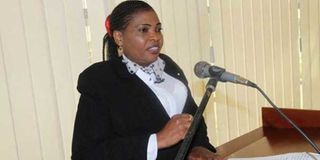Tanzania has 30.5ml cows: NBS

What you need to know:
NBS director general Dr Albina Chuwa said Tanzania is the second country in Africa with the largest population of livestock.
Dodoma. Tanzania’s cattle population has increased to 30.5 million (cows) in 2016/17 compared with 25.8 million recorded in the previous financial year, latest survey whose preliminary findings were presented by the National Bureau of Statistics on Wednesday.
NBS director general Dr Albina Chuwa said Tanzania is the second country in Africa with the largest population of livestock.
“In building industrial economy, it’s evident that Tanzania has a great potential for meat processing and export it as well as other products from the animals,” said Dr Chuwa.
Large number of livestock provides an opportunity for both local and foreign investors to invest in the meat and leather processing industries, the Minister for Livestock and Fisheries Mr Luhaga Mpina said.
According to the findings, Tanzania has 18.9 million goats, 5.56 million sheep and 38.59 million traditional chickens by 2016/17.
Regions with high share of livestock in Tanzania mainland include Tabora (8.7 per cent); Mwanza (7.9 per cent); and Manyara (7.2 per cent).
Zanzibar has 175,314 cows, 107,993 goats, 517 sheep and 1.75 million chickens.
On the other hand, the country produced 5.76 million tonnes of maize in 2016/17 and the production increased to 6.68 million tonnes in the 2017/18 financial year.
The regions with high production shares of grains in Tanzania mainland include Mbeya which generates 10 per cent of the total maize and Morogoro that produced 24.5 per cent of rice in Tanzania.
Mbeya also generated 18.2 per cent of Tanzania’s rice.
In Zanzibar, Unguja North produced 3,411 tonnes while Unguja South produced 9,990 tonnes of maize.
“The statistics are timely as Tanzania is implementing its industrial agenda. The government invites investors in the livestock sector especially processing industries to add value to the animal products,” said Mr Mpina.
Mr Mpina also challenges the NBS on finding statistics for labour market and other issues which he said the government lacked the data.



